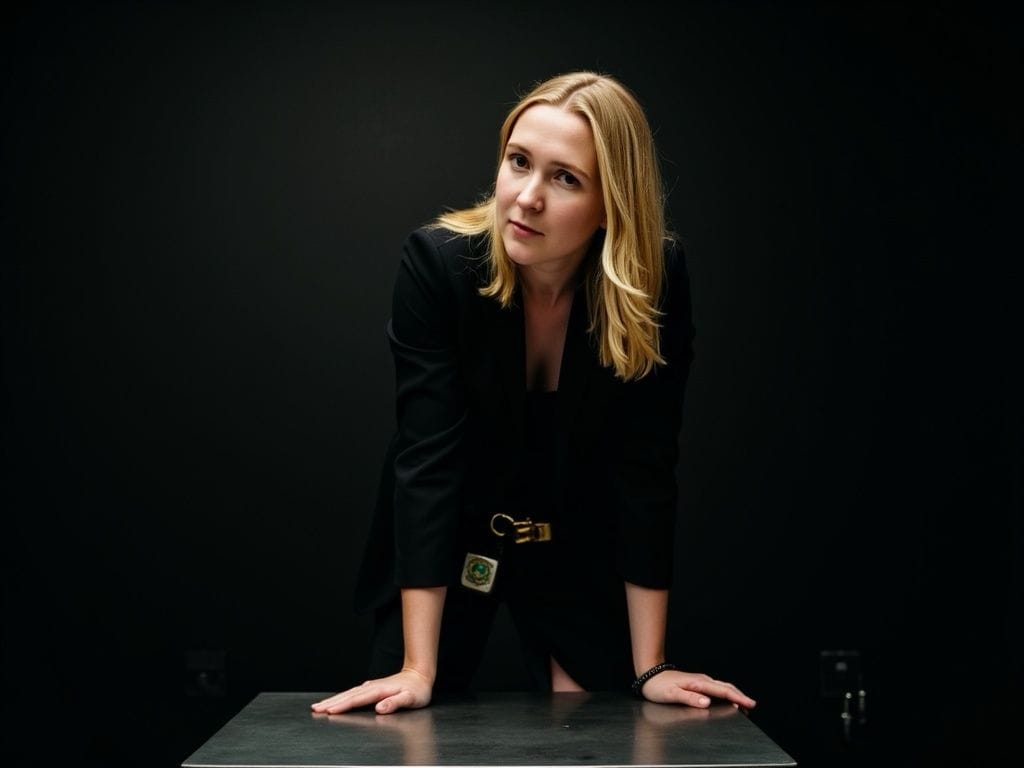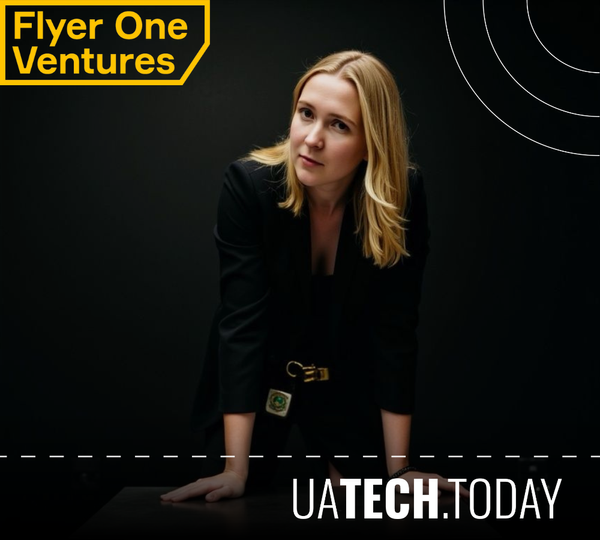What does it take to get a "yes" from a VC? What separates fundable start-ups from the rest in the eyes of top investors?
Elena Mazhuha, Partner at Flyer One Ventures, shared with us what sets winning teams apart, why Ukrainian and CEE founders bring an edge to global markets, and how the investment landscape is shifting in the age of AI. From co-investing with top-tier VCs to helping build some of the region’s most resilient startups, she’s seen it all — and she’s betting on founders who can thrive, not just survive.

Can you share a few of the most recent startups you've invested in? What stood out about those teams or products that made you say yes?
In 2024, we spoke with 1,052 startups and backed nine new companies, including RemotePass, Heartbyte, and Tilta. Our current conversion rate is about 1%, so it's easier to get into Harvard than into our portfolio.
We backed Tilta because the founders are second-timers solving a big, broken problem in B2B payments. They’re fast, focused, and building exactly what the market needs — right team, right time, right pain point.
RemotePass caught our eye with a strong founding team and a product that makes managing remote teams across borders way easier. They’re growing like crazy and already working with big names like Spotify and Logitech.
Heartbyte impressed us with a stellar founding team from Google, Instagram, and Amazon, and a sharp product already gaining traction. In a space dominated by fragmented players, they’re bringing innovation and speed, plus, there's a strong strategic synergy with F1V.
We also supported seven companies with a follow-on check, including Jome (formerly NewHomesMate) and Fintech Farm.
What are the most common reasons you decide not to invest in a startup?
At Flyer One Ventures, we back software-first startups from CEE at seed and Series A. But once a startup clears our filter, it all comes down to the team.
The biggest red flags are founders who dodge responsibility, don’t know their core metrics, or run on autopilot with no clear goals.
We’re not after perfection. We’re after clear-eyed, data-driven, intrinsically driven founders who know what they’re building, why it matters, and how to adapt. Not for chasing fame, fortune, or flashy exits, but because the idea won’t let them go. If that’s missing, it’s a pass from us.
From your experience, what are the biggest challenges or weak points you see in Ukrainian founders? Any specific examples that come to mind?
One big challenge I see is storytelling. A lot of Ukrainian founders have strong technical backgrounds. They’ve built awesome products, sometimes better than what’s out there, but they struggle to frame their story in a way that clicks with Western investors.
They don’t always match the “typical” founder profile: no Ivy League, rarely an ex-Google or Meta badge, so for foreign VCs, it’s harder to benchmark them.
Another challenge is access to capital, especially at Series A and beyond. Local ecosystems often can’t support the kind of checks founders need to scale globally. And without warm intros or networks in the right rooms, even the best teams hit a wall.
Some VC funds intentionally focus on supporting Ukrainian founders. Do you think that’s important — and if so, why?
Supporting Ukrainian, and more broadly, CEE founders is often a really smart investment. Especially when it comes to diaspora founders, they bring the best of both worlds.
They’re building in strong markets like the US or UK, with world-class Ukrainian tech talent that’s fast and insanely good.
And beyond that, these founders are bold. There’s a kind of quiet intensity in how they work, and as an investor, that kind of energy is magnetic. They haven’t had easy access to big checks and mastered the so-called cockroach approach — using cash more effectively and creatively.
Over the past year, AI has developed rapidly. How has this affected the investment climate? Has the market expanded, become more competitive, or shifted in new ways?
AI funding isn’t slowing down in 2025, but the bar is higher. VCs are focusing on AI tools that deliver real value, not hype.
Some of the biggest opportunities are hiding in “messy” industries like healthcare, logistics, construction, and hardware. These are sectors still running on outdated systems, and it makes perfect ground for smart AI to step in.
Robotics is also getting interesting, especially as AI starts optimizing how we build hardware.
There are a few more trends that are hard to ignore: crypto payments going mainstream, AI copilots quietly boosting team output, growing demand for online identity protection, and the accelerated digital transformation of traditional sectors like banking and government.
How has the war in Ukraine influenced your investment strategy, if at all? Have you seen any shifts in founder behavior or investor interest?
Sure, the war has made some investors more cautious about Ukraine-based startups. But it’s also pushed founders to think bigger from day one.
More and more are setting their sights on global markets like the EU and the US — not just to grow, but to de-risk their path. And it’s working.
The war brought out something deep: purpose. Ukrainian founders I meet are more mission-driven than ever. They’re solving real problems, building fast, and proving that innovation doesn’t stop, even in crisis.
At Flyer One Ventures, we only back companies that are building global businesses from day zero and know how to stretch every dollar to make that happen.
How do you typically support the startups you invest in beyond capital — do you take an active role in mentoring, network access, or strategic advice?
We have a strong platform team that helps our portfolio with marketing, PR, hiring, business development, and fundraising. More than 75% of our founders call us the most helpful VC on their cap table.
PR team does full-cycle PR support: funding announcements, media outreach, crisis comms, and speaking at events.
In operations and growth, we conduct audits to identify key metrics, improve workflows, and align goals. We help optimize sales, product traction, and marketing performance with data-driven strategies and funnel improvements.
For talent acquisition, we guide startups in building hiring plans, structuring teams, and managing end-to-end hiring. We do salary research to share benchmarks and market insights. For some companies, the TA team does full-cycle hiring, too. In the past year alone, we brought over 75 top talents on board.
We help with fundraising and networking to help them raise Series A: 55% of our companies have already gotten there.
What trends or sectors are you most excited about right now, especially in relation to Ukrainian founders?
I get really excited about early-stage startups tackling what people call the “boring” industries. Stuff like healthcare software, construction tech, logistics, and legal tech.
My latest deals include healthcare startups, a fintech/gig economy play, and even AI for fiction writers. These aren’t your typical glamour industries, but that’s exactly why I’m into it.
I love working with founders who bring something wild to the table. The real freaks. The ones with crazy experiences, unexpected takes on life, and without interest in playing it safe. I love founders who are hungry — not in the cliché way, but in the can’t-sleep-until-it’s-built way.
I know, not super flashy. But that’s where the real, overlooked opportunities are.
Does a founder’s physical location still matter when it comes to raising capital? Or is that becoming less relevant?
Definitely yes. That said, when it comes to raising Series A and beyond, you need to have relationships with top-tier VCs in the US or Western Europe. Warm intros, trust, presence in the right circles — it all plays a role.
Later-stage investors are rarely excited to back founders they don’t know well. Harsh but true.
Sure, some ecosystems offer better networks or resources, but in the end, the best deals can come from anywhere.
In your opinion, what qualities or preparation should a Ukrainian founder have today to successfully raise investment?
Solid product and balanced founding team, big market, real traction beyond Ukraine, especially in markets like the EU or US, which shows they can play on a global field. They need to prove they can scale fast and wide.



